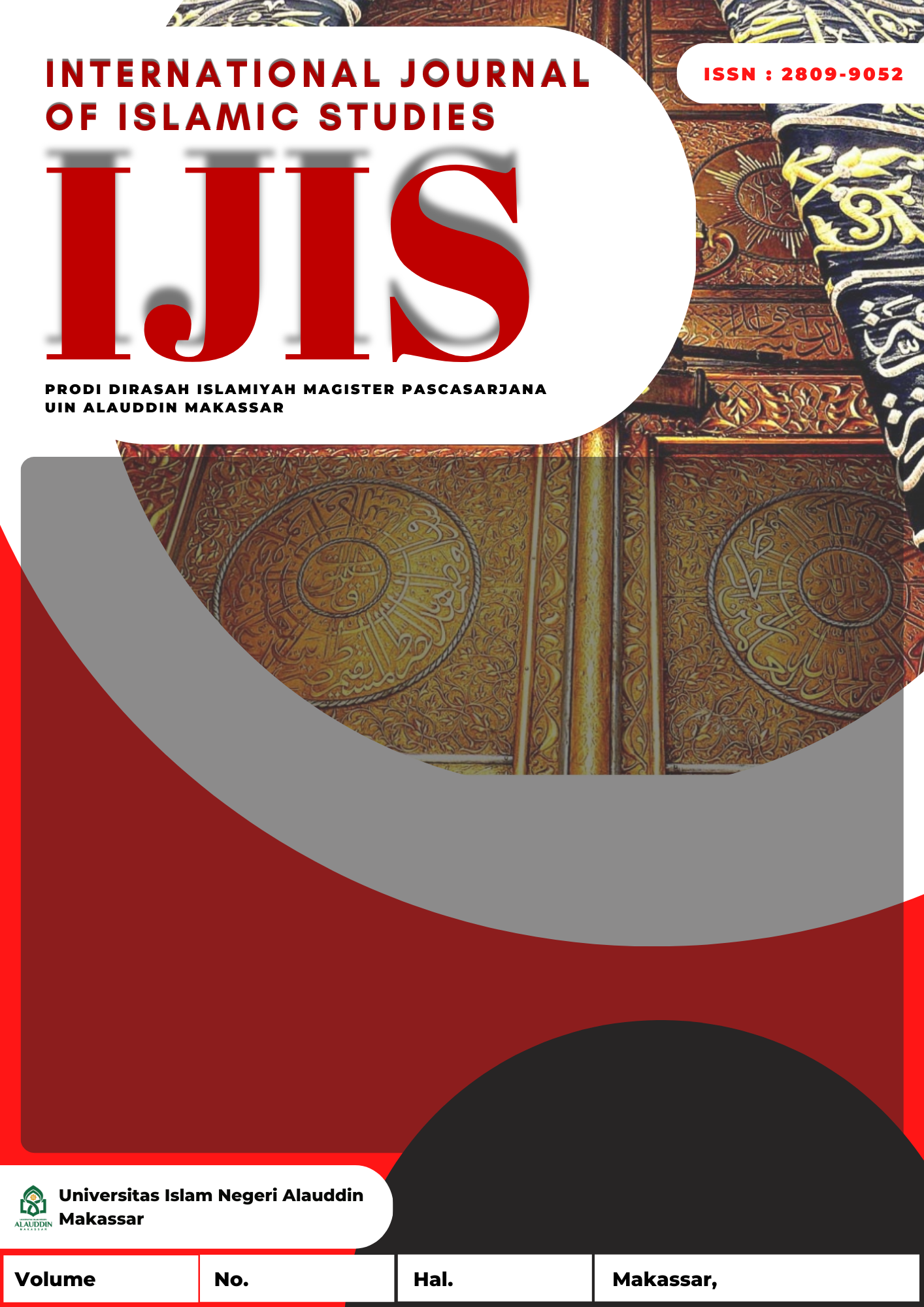THE ISLAMIC CULTURE INTEGRATION AND THE LOCAL CULTURE IN THE WEDDING AT DISTRICT OF BUNTU BATU ENREKANG REGENCY
Abstract
The main problem rises is how is the existence of the Islamic culture integration and the local culture in the wedding at District of Buntu Batu Enrekang Regency. This research aims to know the wedding process at district of Buntu Batu Enrekang Regency which is inside integrated between the Islamic culture and the local culture. The wedding process at district of Buntu Batu Regency of Enrekang as the result of Islamic Culture Integration and the local culture produces the wise local values that shine the Islamic element. This research uses a qualitative method which is based on the field research by conducting a historical approach, sociology, anthropology and phenomenology. The result appoints that an encounter between the Islamic culture and the local culture in the recycling of people’s life still in acculturation process namely on birth’s rites and the demise also something joins into the integration level that is in the wedding rites.
References
M. Dahlan. M. Islam dan Budaya Lokal Kajian Historis Terhadap Adat Perkawinan Bugis Sinjai. “Disertasi”. (Makassar: Pps UIN Alauddin Makassar, 2013.
Mattulada. LATOA Satu Lukisan Analitis Terhadap Antropologi Politik Orang Bugis. Cet. II; Ujung Pandang: Hasanuddin University Press, 1995.
Saransi, Ahmad, dkk. Tradisi Masyarakat Islam di Sulawesi Selatan. Cet. I; Makassar: Lamacca Press, 2003.
Authors who publish with this journal agree to the following terms:
1) Authors retain copyright and grant the journal right of first publication with the work simultaneously licensed under a Creative Commons Attribution License that allows others to share the work with an acknowledgement of the work's authorship and initial publication in this journal.
2) Authors are able to enter into separate, additional contractual arrangements for the non-exclusive distribution of the journal's published version of the work (e.g., post it to an institutional repository or publish it in a book), with an acknowledgement of its initial publication in this journal.
3)Authors are permitted and encouraged to post their work online (e.g., in institutional repositories or on their website) prior to and during the submission process, as it can lead to productive exchanges, as well as earlier and greater citation of published work (See The Effect of Open Access).







